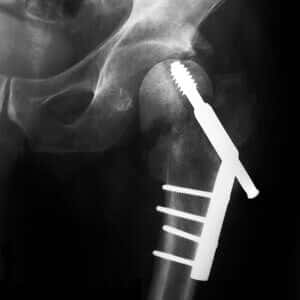
We are often asked about long-term side effects of medications people will be taking for a long time. Drugs to treat osteoporosis are usually taken for years, if not decades.
FDA usually does not require long-term tests to determine safety. As a result, there may be significant delays before scientists learn about potentially serious adverse drug reactions.
That appears to be the case with the osteoporosis drugs called bisphosphonates. Some popular brands include Actonel, Boniva, Fosamax, Reclast and Zometa.
Millions of women rely on these medications to keep their bones strong and prevent debilitating fractures. They have been widely advertised on television as a way of maintaining an active lifestyle without worrying about breaking bones.
A new report suggests that these medications are not innocuous. Earlier this year the FDA issued a warning that such medications can sometimes cause severe, even incapacitating, muscle, bone or joint pain.
Such admonitions frequently seem abstract. When you hear a disembodied voice during a TV commercial rattle off a string of side effects, it may be hard to imagine that they might happen to you.
One reader told us about her experience:
“I took two doses of Boniva, a month apart. Following the first dose, I experienced shooting pains in my arms and legs for about six hours, but considered this to be normal after I read the information that came with the prescription.
“Following the second dose, I had severe, flu-like symptoms including fever, unrelenting chills and spasms and intense pains in all of my limbs. I was left with low back pain that made me double up after sitting for short periods of time.
“The experience left me drained and debilitated for nearly a month, and I am just beginning to feel normal again.”
Debilitating pain is not the only possible side effect of these medications that was discovered years after they were approved. Jawbone death (osteonecrosis of the jaw) is a rare but very serious complications associated with bisphosphonate drugs. Oral surgeons worry about tooth extraction for women on these medications.
More recently, researchers have discovered that such osteoporosis drugs may increase the risk of an irregular heart rhythm called atrial fibrillation. Dr. Jennifer Miranda reported to the American College of Chest Physicians (Oct 27, 2008) that serious atrial fibrillation requiring hospitalization was more common in women taking bisphosphonates. This condition can raise the risk of having a stroke, but it is not listed in the official prescribing information for most of these medications.
The FDA began reviewing this issue more than a year ago. A recent update from the agency downplays the danger and concludes, “healthcare professionals should not alter their prescribing patterns for bisphosphonates and patients should not stop taking their bisphosphonate medication.” The agency does request reports of atrial fibrillation associated with this class of bone drugs be made to MedWatch (www.fda.gov/Safety/MedWatch/default.htm).
Here is one such report we received from a reader:
“I took Fosamax for osteoporosis for over five years and then Boniva for one year. I recently began experiencing shortness of breath when walking or exercising. I could not finish a treadmill stress test because a rapid and irregular heartbeat (atrial fibrillation) was detected.
“My doctor put me through lots of tests and then took me off Boniva. I now take metoprolol and warfarin for the atrial fibrillation. Before all of this, I was an extremely healthy and active 67-year-old woman who walked two miles every day. The atrial fibrillation came on almost overnight.”
These medications offer benefit for those who can tolerate them, but the range of side effects being discovered might make doctors a little more cautious about prescribing them in the future.

